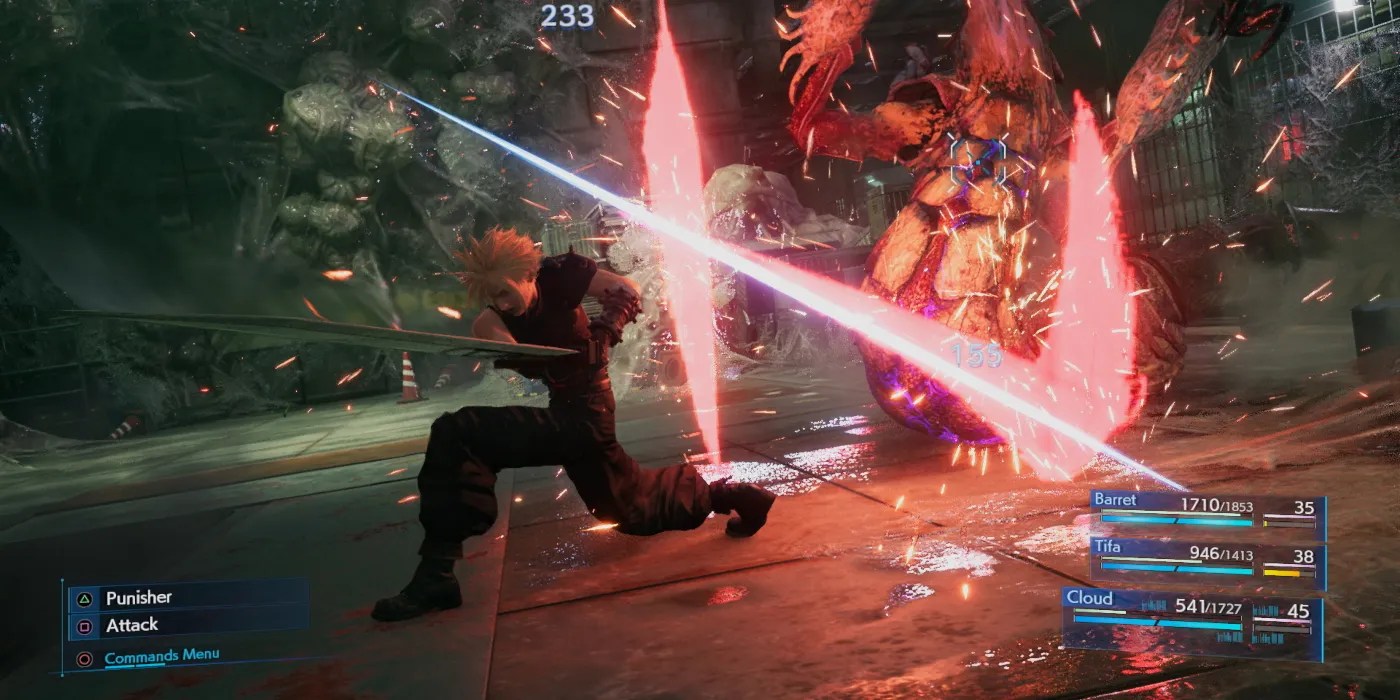Traditional and earlyFinal Fantasygames from the 90s tend to have a stigma tacked on to them when the gaming community discusses the franchise’s titles throughout its history. While many things have changed and evolved for the series in the decades since the beginning, one of the greatest departures/evolutions has been gameplay, ranging from combat to exploration. Interestingly enough, there’s tons of recent RPGs that still carry on with many classic mechanics whileFinal Fantasyfollows modern trends.
Turn-based combat, obscure magical affinities/weaknesses, character “job” systems, and various other features still add depth and complexity to modern JRPGs that aren’tFinal Fantasy. More importantly, these games aren’t usually lauded for their battle systems despite adhering to the same base formulaFinal Fantasypioneered in many ways. That being said, despite the franchise literally remaking one of their landmark titles, recent entries in the series have eschewed many of the complex JRPG systems that defined the series for so long.

RELATED:10 Classic RPGs You Didn’t Know Already Got A New Remake
Final Fantasy: Out with the Old, In with the New
Evolving the franchise beyond its staple mechanics was never a bad concept for theFinal Fantasyfranchise. Though some results have been mixed, for the most part the series has found its stride with modern gameplay mechanics. There’s no exact game in the franchise where fans can pinpoint when this shift in development focus came from, but most would argueeverything afterFinal Fantasy 10was where drastic changes took place. Things like an action-oriented battle system that focused on reactions/parries/commands modernized the franchise in an endearing way, thanks to the popularity of a certain other Square Enix franchise calledKingdom Hearts.
The series has also experimented with open-world environmental design, and to great effect with games likeFinal Fantasy 15. Much of the main praisesfor the fifteenthFinal Fantasygamestems from crafting a beautiful world map generally worth exploring as much as possible. The world was filled with rare and challenging monster fights, none of which were random encounter battles unlike past games. Pairing this with the open-ended mission structure gave players an unprecedented freedom in how they played aFinal Fantasygame. Even the most recent game,Final Fantasy 7 Remake, incorporates a completely new action-oriented battle system and some open-world elements as well.

Octopath Traveler, Persona: Tweaking the Formula
Although, just becauseFinal Fantasyhas since changed many elements once core to the franchise, doesn’t mean other games won’t succeed in spite of these changes. There have been numerous games in recent years that have featured turn-based battles, random encounters, unique job roles, and other mechanics that have received praise. Some of which are very similar toFinal Fantasy, such asother Square Enix projects likeOctopath TravelerandBravely Default. Franchises outside of Square Enix, like Atlus’Personaseries, continue to use turn-based battles along with focusing on complex uses of elemental affinities/weaknesses.
Though it is important to point out that each one of these games adds its own distinctive flair to these core features.Octopath TravelerandBravely Defaultboth feature a boost mechanic that rewards patient players with additional actions per turn.Persona 5had a similar boost mechanic with Baton Pass, which could be used to transfer the additional turn to a specific party member whilst boosting their attack stats.Persona 5also utilized the all-out-attack mechanic, that capitalized upon stunning enemies with elemental weaknesses by doing massive damage. These are just some of many different tweaks toFinal Fantasy’s battle foundation that make these games more engaging in comparison.

Moving Forward After Final Fantasy 7 Remake
At this point, it’s hard to seeFinal Fantasyever really returning to the traditional combat mechanics from the franchise’s early days. Unless the series were to take a 180 andcreate a love letter similar toFinal Fantasy 9, subsequent games will likely follow modern gaming trends. Even then, the series doesn’t need that nostalgic factor anymore. Considering the massive success ofFinal Fantasy 7 Remake, the franchise seems to have found a solid balance between old-school flavor and new-school mechanics. WhereFinal Fantasy 15got the ball rolling on fundamentally changing the battle system,Final Fantasy 7 Remakeperfected it without sacrificing any strategic elements from the original game.
Even though a future entry similar toBravely DefaultorOctopath Travelerwould be an interesting concept, theFinal Fantasyfranchise’s future doesn’t need to depend on its past for future installments.